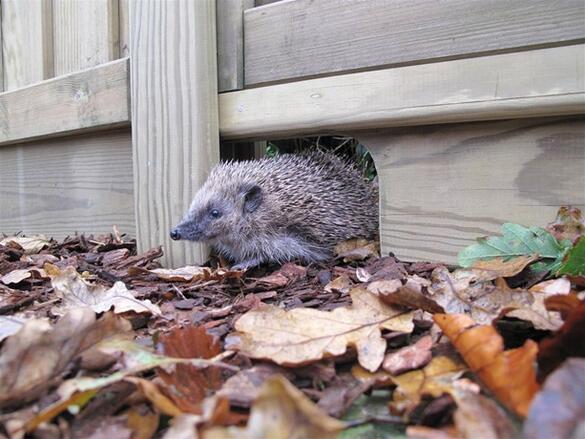Hedgehogs and Climate Change
If you were unaware that UN Climate Change Conference (COP26) is happening between October 31st and November 12th then you must be hibernating.
Glasgow will host an event many believe to be the world’s last best chance to get runaway climate change under control.
For nearly three decades the UN has been bringing together almost every country on earth for global climate summits - called COPs - which stands for ‘Conference of the
Parties’. 'In that time climate change has gone from being a fringe issue to a global priority. This year will be the 26th annual summit – giving it the name COP26.
Although we are unable to delegate at COP26 we are in a capacity to understand how climate change could be affecting our own native wildlife focussing on our native Hedgehog - The European Hedgehog (Erinaceus europaeus).
As hibernating mammals, the uncertainty caused by warmer, wetter winters, predicted under existing climate models for the UK, may have detrimental impacts on Hedgehogs. Hedgehogs are known to periodically awake from hibernation and forage for short periods during warm winter spells. With warmer winters, these periods of winter waking may be increasing. This poses problems if the energy lost during winter waking is not replaced due to the lack of food sources available in the winter.
There is seems to be evidence that Hedgehogs are affected by a change in climate:
Saadia Khan, from the People's Trust for Endangered Species, (PTES) investigated if changing climatic conditions are affecting Hedgehog survival during winter waking. Her research assess what food is available for Hedgehogs over winter. The results from this study will help us understand how a changing climate is affecting British Hedgehogs. Her report can be viewed here.
Hedgehogs, water voles and the iconic Hertfordshire bluebells are understood to be at risk unless urgent action is taken against climate change in the county, environment experts have warned.
Trevor Weeks founder of Wildlife Rescue Ambulance Service (WRAS) also suggests that because Hedgehogs are not hibernating when they should then this can "Drastically impact their functioning -- eliminating their access to food or giving them access to food that they don’t normally consume -- food that can harm them too. This also puts them in crosshairs of predators, at a time when they’re disoriented and weak."
We understand that climate change may have an influence on the behaviour and food availability of Hedgehogs. Although more research is required to elucidate this there are other factors such as habitat loss and loss of food availability having a negative impact on Hedgehogs.
There is much we can all do to help our native wildlife and support wildlife rescue. Why not support us to enable our community conservation programs to thrive and to provide a lifeline to wildlife rescuers across the country.
"It's all about encouraging people to participate and learn about the natural world through hands on discovery."

